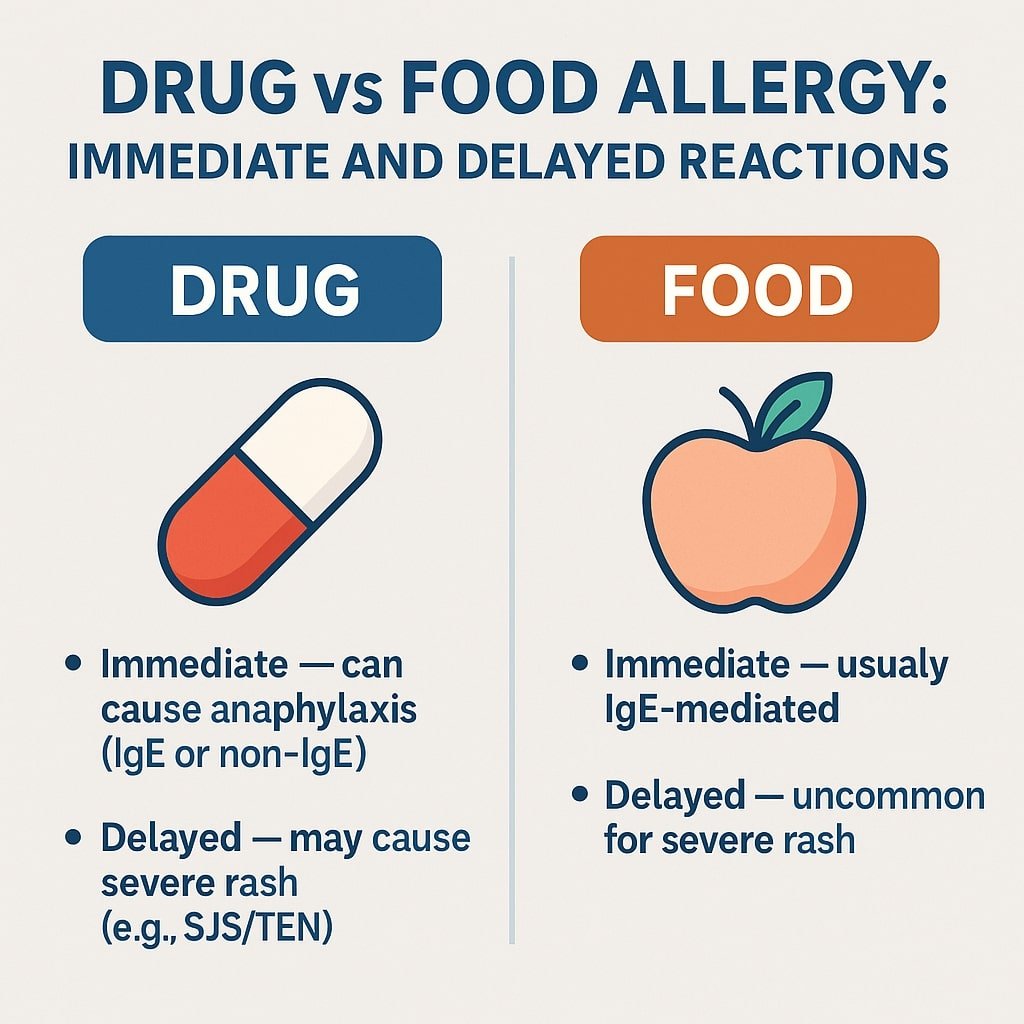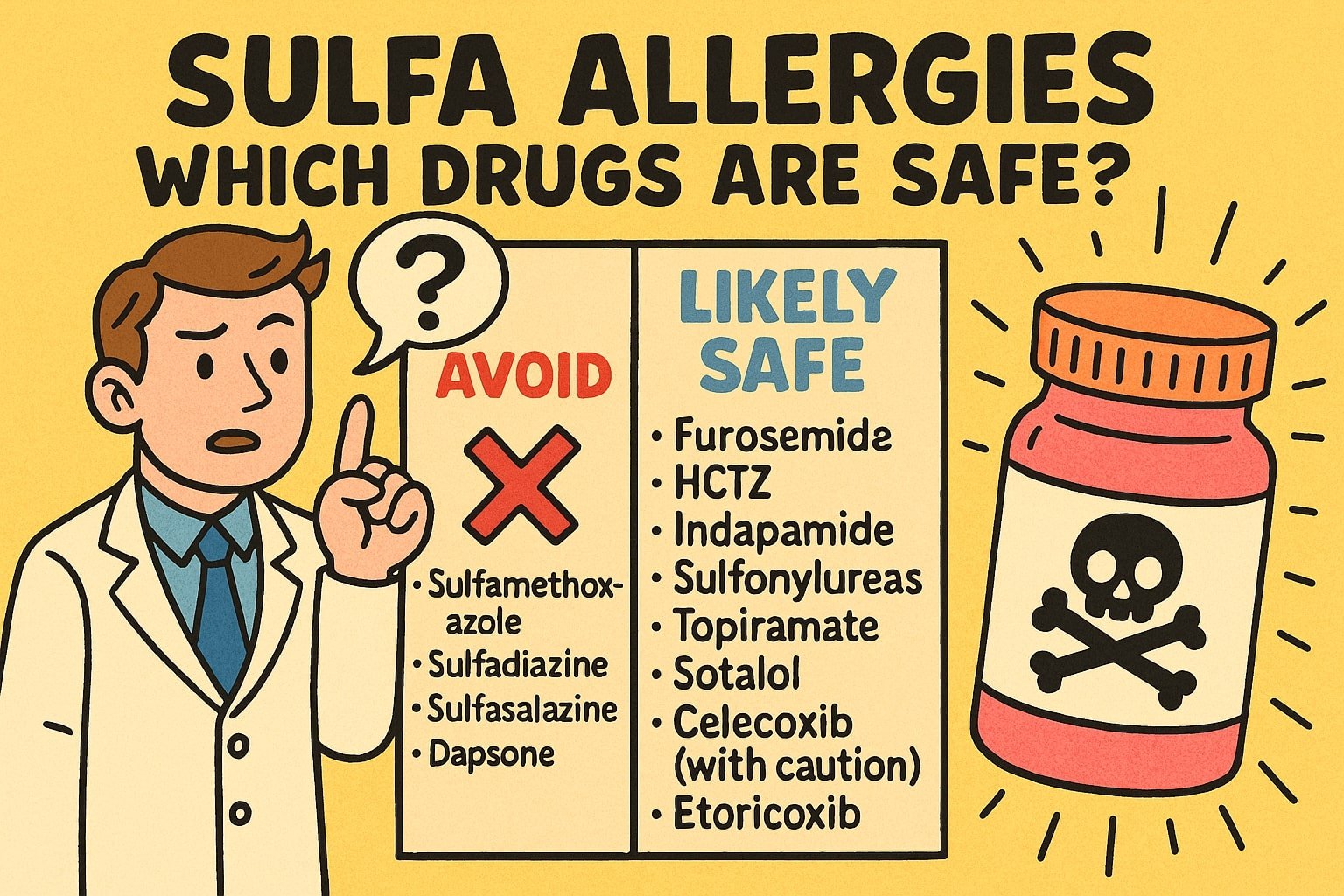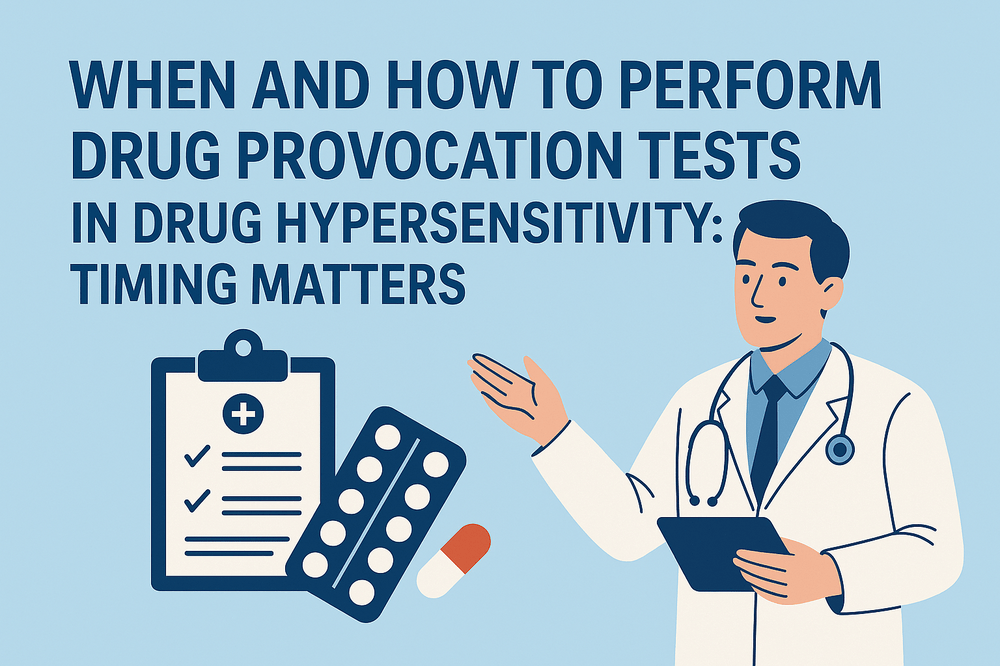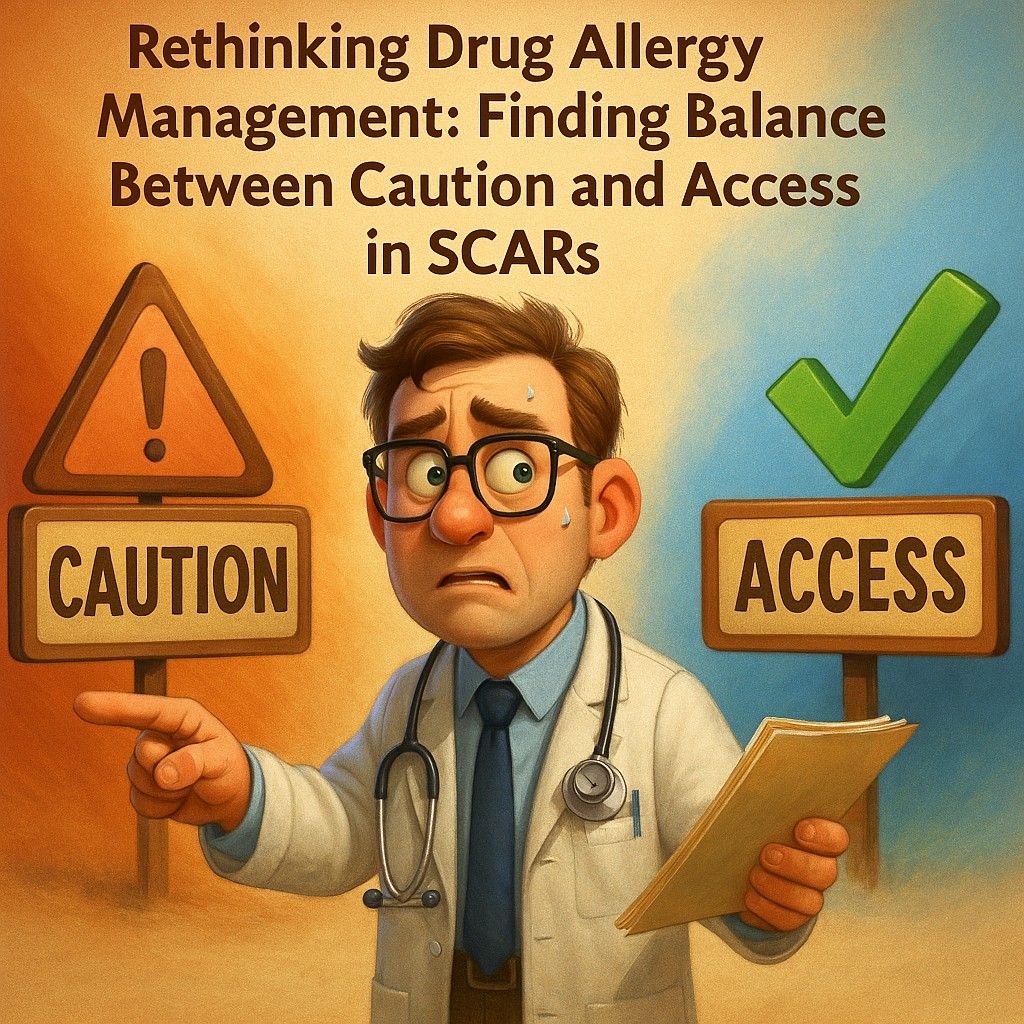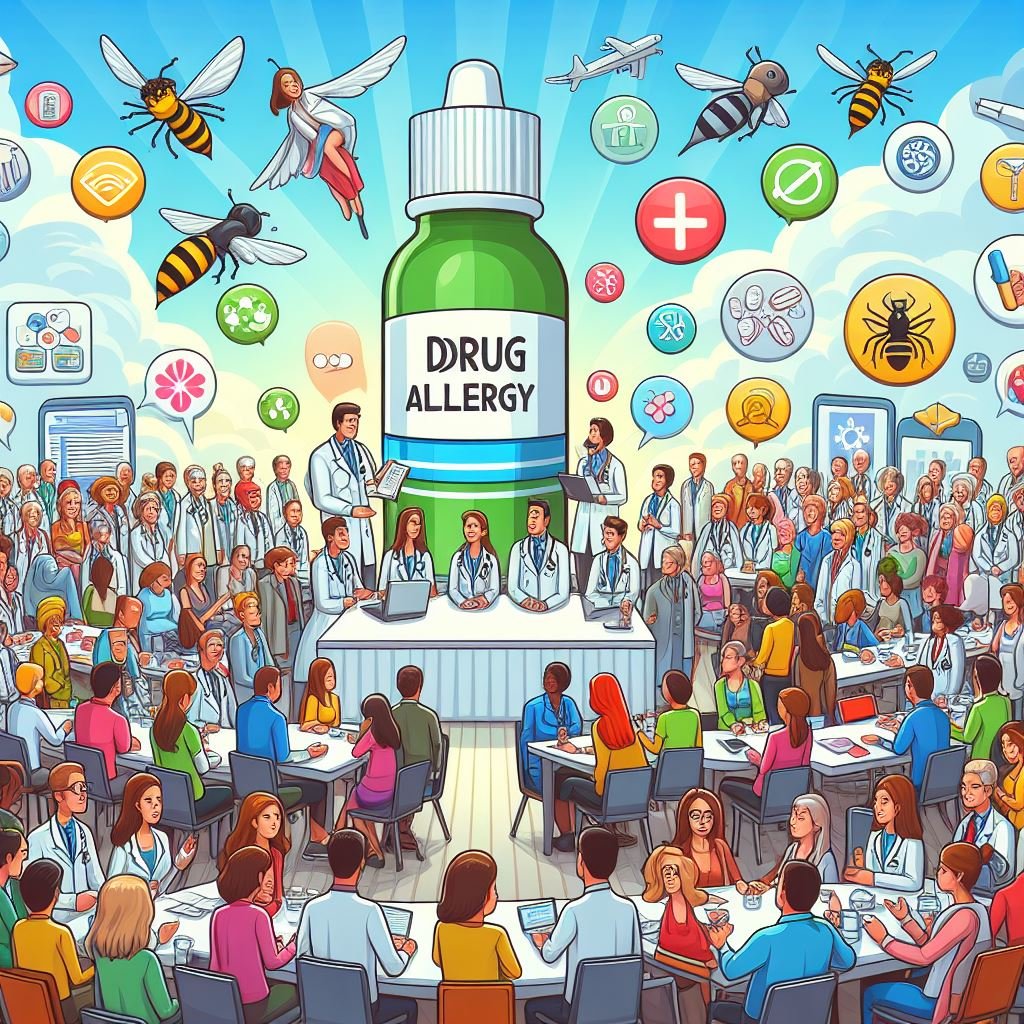AGEP vs GPP: When Skin Reactions Look Similar but Behave Very Differently Skin rashes can be alarming, especially when they appear suddenly and spread quickly. Two conditions that often cause confusion are acute generalized exanthematous pustulosis (AGEP) and generalized pustular psoriasis (GPP). AGEP vs GPP is a comparison that often raises confusion among both patients and clinicians. These two skin conditions can appear strikingly similar at first glance, yet their causes, clinical behavior, and long-term management are very different. Understanding these differences is important — not only for accurate diagnosis,…
Read MoreCategory: Living with Drug Allergy
General knowledge for patients living with drug allergy in everyday life
Drug vs Food Allergy: Immediate & Delayed Reactions
Drug vs Food Allergy: Why Medications Can Cause Both Immediate and Delayed Reactions — While Foods Uncommonly Cause Severe Delayed Reactions This article is for educational purposes only. Always consult healthcare providers for personalized medical advice. Patients often ask:“Why can medications cause both rapid allergic reactions like hives or anaphylaxis and dangerous delayed reactions such as Stevens–Johnson Syndrome (SJS) or Drug Reaction with Eosinophilia and Systemic Symptoms (DRESS), while food allergies almost always appear immediately?” The difference lies in how the immune system processes drugs versus foods — and in…
Read MoreSulfa Allergy: Safe Drugs, Drugs to Avoid, and How to Think About Cross-Reactivity
Many patients search online for sulfa allergy safe drugs after experiencing severe reactions to antibiotics such as co-trimoxazole (trimethoprim-sulfamethoxazole). When people hear the term “sulfa allergy,” confusion often follows. Some patients wonder if they must avoid every drug with “sulfa” in the name. The truth is: not all sulfa-containing medications are dangerous. The key is understanding the chemical structure—specifically whether the drug contains the N4 arylamine group. The Real Culprit: The N4 Arylamine Group The allergy risk in sulfonamide antibiotics comes from a specific chemical feature known as the N4…
Read MoreWhen and How to Perform Drug Provocation Tests in Drug Hypersensitivity: Timing Matters
Introduction Drug provocation test timing plays a critical role in evaluating suspected drug allergies. Drug provocation testing (DPT), also known as a drug challenge, remains the gold standard for confirming or ruling out drug hypersensitivity. However, success depends heavily on understanding how soon after drug exposure symptoms appear. By tailoring the timing and protocol of DPT based on the type of reaction—immediate, delayed, or severe—clinicians can improve diagnostic accuracy and minimize risk. This post outlines practical strategies, guideline updates, and real-world challenges that affect how and when drug provocation tests…
Read MoreRethinking Drug Allergy Management: Finding Balance Between Caution and Access in SCARs
Drug allergies present a complex landscape, demanding tailored management strategies based on the reaction’s nature and severity. We’ve witnessed significant progress in “de-labeling” allergies to common drugs like penicillin through careful testing, allowing many to safely access essential treatments. However, the approach to severe cutaneous adverse reactions (SCARs) – encompassing Stevens-Johnson Syndrome (SJS), Toxic Epidermal Necrolysis (TEN), Drug Reaction with Eosinophilia and Systemic Symptoms (DRESS), and Acute Generalized Exanthematous Pustulosis (AGEP) – often stands in stark contrast: a broad and often indefinite avoidance of all potentially implicated drugs. While the…
Read MoreUnderstanding Aspirin and NSAID Hypersensitivity: Symptoms, Diagnosis, and Management
Introduction to Aspirin (ASA) and Nonsteroidal Anti-Inflammatory Drugs (NSAIDs) Aspirin (ASA) and Nonsteroidal Anti-Inflammatory Drugs (NSAIDs) are among the most widely utilized medications in the world, renowned for their efficacy in alleviating pain, reducing inflammation, and lowering fever. Aspirin, extensively studied since its introduction in the late 19th century, is also acclaimed for its cardiovascular benefits, particularly in preventing heart attacks and strokes. NSAIDs, which include ibuprofen, naproxen, and diclofenac, offer similar therapeutic effects and are indispensable in managing a range of conditions from acute injuries to long-term issues like…
Read MoreWelcome to Drug Allergy Detective: Your Guide to Drug Allergy Mastery
Unsure about managing drug allergies? Learn effective strategies for communication, avoidance, and specialist care.
Read MorePenicillin Allergy: Friend or Foe? New Tools Help Doctors Decide
Penicillin is a powerful and commonly used antibiotic, but many people mistakenly believe they are allergic. Up to 90% of people who think they have a penicillin allergy might not be truly allergic! [1] This can be a problem because penicillin is often the most effective and affordable treatment for many infections. New Tools for Identifying True Penicillin Allergies Two new scoring systems are helping doctors differentiate true allergies from misunderstandings: PEN-FAST and PEN-FAST +. PEN-FAST: A Quick and Easy Risk Assessment Pen-Fast [penicillin allergy, within last five years, anaphylaxis/angioedema,…
Read MoreDrug Allergy Testing: A Comprehensive Guide
Available Drug Allergy Skin Tests Drug allergy skin tests play a crucial role in diagnosing potential allergic reactions to medications. Among the most common tests are the prick test, intradermal test, and patch test. Each of these tests has specific methodologies, applications, and diagnostic capabilities. The prick test, also known as a scratch test, is frequently used to identify immediate allergic reactions. During this test, a small amount of the suspected allergen is placed on the skin, usually on the forearm or back, and the skin is lightly pricked with…
Read More

